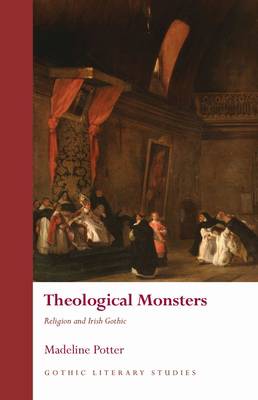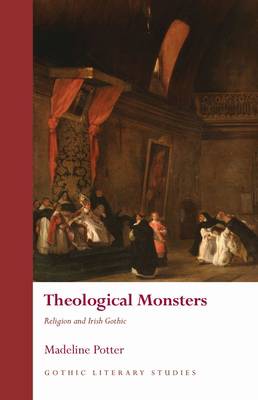
- Retrait en 2 heures
- Assortiment impressionnant
- Paiement sécurisé
- Toujours un magasin près de chez vous
- Retrait gratuit dans votre magasin Club
- 7.000.0000 titres dans notre catalogue
- Payer en toute sécurité
- Toujours un magasin près de chez vous
Description
Studies three classic Irish Gothic works through the lens of theology. This book explores how monsters articulate questions about the sacred in nineteenth-century Irish Gothic literature. The relationship between religion and Gothic literature has traditionally been approached through denominational readings, but Theological Monsters proposes that Irish Gothic texts, from Charles Maturin's Melmoth the Wanderer to Le Fanu's Carmilla and Bram Stoker's Dracula, cannot be inscribed into particular doctrinal frameworks. Abandoning allegorical interpretations, Potter proposes that real-life theologies do not translate into the fictional ones articulated across these texts. The book's focus is, then, on revealing how the bodies of monsters make real and tangible otherwise abstract concepts associated with God and the afterlife. Therefore, the book identifies monstrosity as a valuable way of seeking to uncover knowledge of the divine in nineteenth-century Irish Gothic literature, proposing an original reassessment of three canonical writers--Maturin, Le Fanu, and Stoker--in order to highlight their fictional theological exercises.
Spécifications
Parties prenantes
- Auteur(s) :
- Editeur:
Contenu
- Nombre de pages :
- 240
- Langue:
- Anglais
- Collection :
Caractéristiques
- EAN:
- 9781837723546
- Date de parution :
- 19-04-26
- Format:
- Livre relié
- Format numérique:
- Genaaid
- Dimensions :
- 138 mm x 216 mm
- Poids :
- 453 g

Seulement chez Librairie Club
+ 229 points sur votre carte client de Librairie Club
Les avis
Nous publions uniquement les avis qui respectent les conditions requises. Consultez nos conditions pour les avis.





